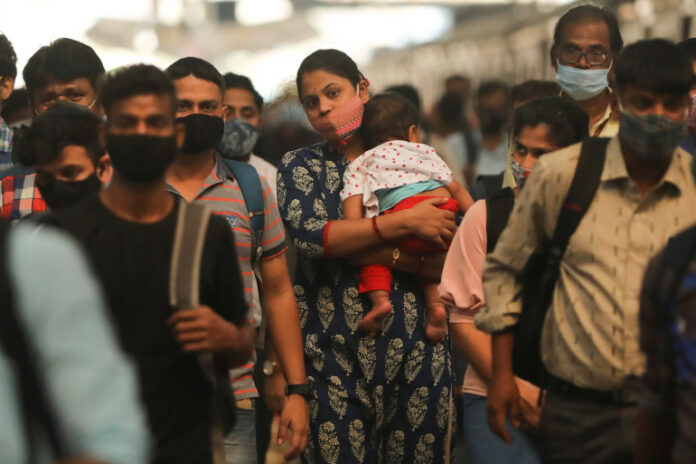NEW DELHI: India’s surging inflation is adding to the country’s economic woes, presenting challenges for businesses and policymakers alike as analysts warn of risks that could prevent prices of essential goods easing in the near future.
Wholesale price inflation jumped 12.94 percent in May, a near 30-year high, driven by soaring fuel prices, while retail inflation hit a six-month peak of 6.3 percent as food and fuel costs rose, exceeding the central bank’s higher band and analysts’ estimates, according to official data released this month.
“The risk of inflation turning persistent exists,” Anubhuti Sahay, head of economics research for South Asia at Standard Chartered, says. “[This is] especially because the rise in May’s consumer price inflation was driven by a broad-based surge, and if commodity prices stay elevated.”
A major factor driving the spike in inflation is elevated oil prices, which have been hitting multi-year highs recently. India is heavily dependent on oil imports and this has a knock-on effect on the cost of other goods, including an increase in transportation costs. Fresh lockdown curbs imposed during a deadly second wave of Covid-19 have also affected supply chains, putting upward pressure on prices.
“Inflation pressure may remain high ahead, with upcoming prints looking to be above the May print,” Madhavi Arora, lead economist at Mumbai-based Emkay Global Financial Services, says.
The surge in inflation is posing a challenge for policymakers, with the Reserve Bank of India (RBI) instead focusing efforts on supporting economic growth. The country’s economy has been battered by the second wave of the coronavirus, which has derailed what looked to be a promising start to a recovery after last year’s pandemic-induced recession.
India’s economy contracted 7.3 per cent in the April 2020 to March 2021 financial year, according to data. Meanwhile, the World Bank this month cut its growth forecast for the current financial year to 8.3 per cent from its earlier projection of 10.1 per cent.
The pandemic’s second wave prompted authorities to introduce fresh lockdown curbs, with fears of a third wave in the autumn. “India’s recovery is being hampered by the largest outbreak of any country since the beginning of the pandemic,” the Washington-based lender said.
Faltering economic growth leaves the RBI with little leeway to raise interest rates to bring inflation under control because it would raise the cost of borrowing.
But the dilemma for policymakers is that soaring inflation can hamper a pick-up in the economy, particularly as consumer price inflation has breached the RBI’s upper threshold of 6 per cent.
“High inflation amid low growth impacts disposable incomes and thus aggregate demand,” Ms Sahay says. “It has the potential to delay the recovery process.”
Many businesses are struggling amid the pandemic’s impact and steep inflation is making profitability more challenging. If inflation remains elevated over the coming months, the situation will worsen for many business owners, analysts say.




